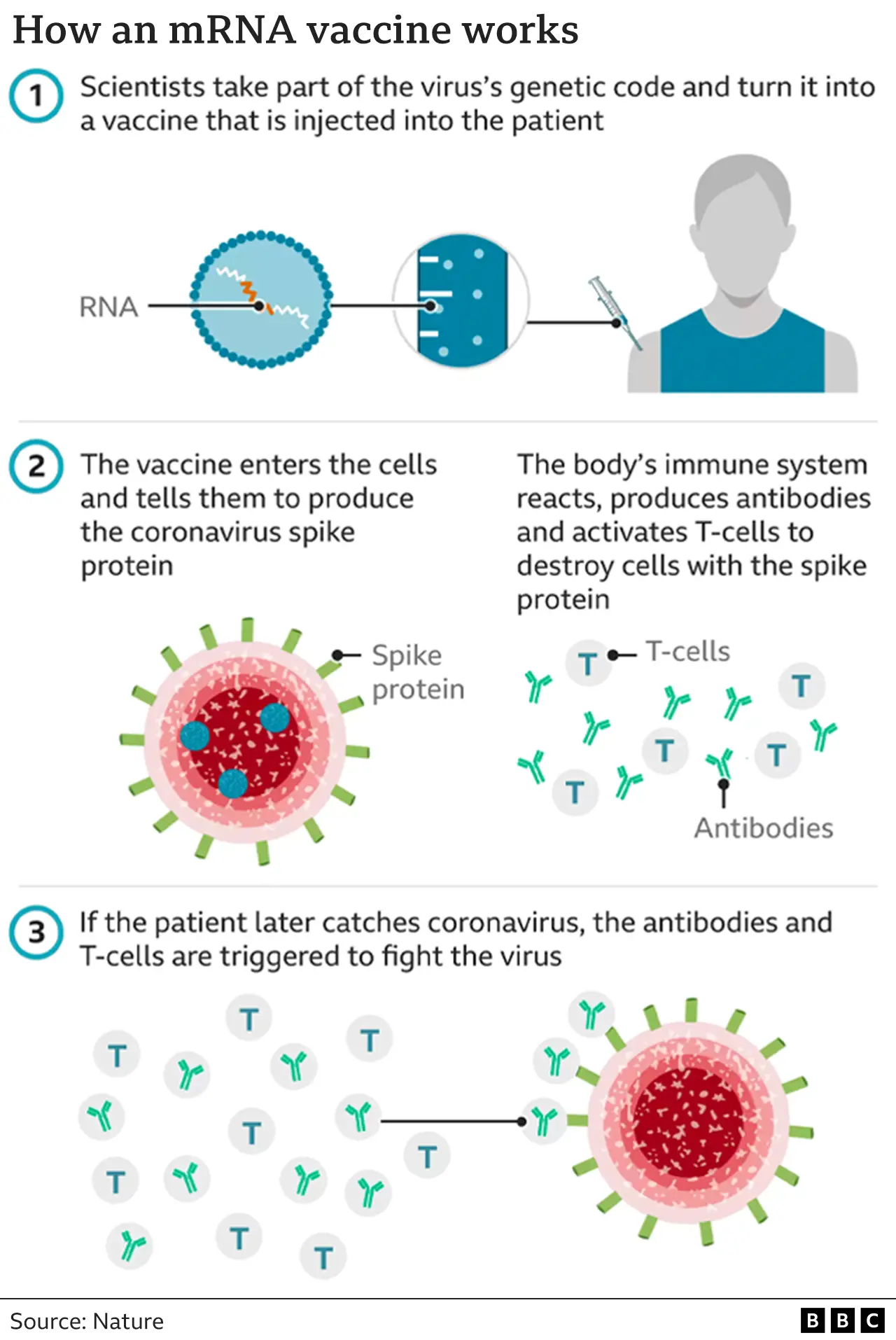Long COVID Risk Reduction: The Role Of COVID-19 Vaccines

Table of Contents
COVID-19 Vaccines and Reduced Severity of Initial Infection
A less severe initial COVID-19 infection significantly reduces your chances of developing Long COVID. This is because the severity of the initial illness directly correlates with the level of inflammation and damage to the body. COVID-19 vaccines help achieve this reduction in severity through several mechanisms:
- Reduced Viral Load: Vaccines help lower the amount of virus in your system (viral load), minimizing the extent of inflammation and tissue damage. A lower viral load translates to milder symptoms and a faster recovery.
- Faster Recovery Times: By reducing the severity of the illness, vaccines contribute to faster recovery times. This minimizes the duration of symptoms, thereby decreasing the window of opportunity for long-term complications to develop.
- Lower Risk of Organ Damage: Severe COVID-19 infections can lead to organ damage, increasing the risk of Long COVID. Vaccines significantly reduce the severity of illness, thereby lowering the risk of such damage.
Studies have consistently shown that vaccinated individuals experience milder COVID-19 symptoms, shorter recovery times, and reduced rates of hospitalization compared to their unvaccinated counterparts. These findings underscore the protective effect of vaccination against the development of Long COVID.
Vaccination and Hospitalization Prevention
Preventing hospitalization is crucial in reducing the risk of Long COVID. Hospitalization exposes individuals to various risks that can contribute to long-term health issues:
- Secondary Infections: Hospitals are environments where secondary infections are more likely. These infections can exacerbate existing conditions and contribute to the development of Long COVID.
- Intensive Care and Organ Dysfunction: ICU admission, often necessary for severe COVID-19 cases, carries a higher risk of organ dysfunction and long-term health problems, significantly increasing the risk of Long COVID.
- Medical Interventions and Side Effects: Medical interventions during hospitalization, while life-saving, can also have potential negative side effects that may contribute to long-term complications.
Numerous studies have demonstrated significantly lower hospitalization rates among vaccinated individuals compared to the unvaccinated population. This substantial reduction in severe illness directly translates to a lower risk of developing Long COVID's long-term complications. Data from the CDC and WHO consistently support this finding.
Direct Evidence Linking Vaccination to Lower Long COVID Risk
Emerging research provides direct evidence linking COVID-19 vaccination to a lower incidence of Long COVID. While research is ongoing, several studies have indicated:
- Reduced Prevalence of Long COVID Symptoms: Studies comparing vaccinated and unvaccinated individuals have shown a lower prevalence of various Long COVID symptoms, such as fatigue, brain fog, and shortness of breath, among those who were vaccinated.
- Vaccine Effectiveness Against Long COVID: While the effectiveness varies depending on the vaccine type and the prevailing COVID-19 variant, studies show that vaccination generally offers significant protection against developing Long COVID.
- Ongoing Research and Limitations: It is important to acknowledge that research into the long-term effects of vaccination on Long COVID is still ongoing. Further studies are needed to fully understand the nuances of vaccine effectiveness against different Long COVID manifestations.
Despite these limitations, the available evidence strongly suggests that vaccination plays a crucial role in mitigating the risk of Long COVID.
Addressing Common Concerns and Misinformation about COVID-19 Vaccines
Concerns about vaccine safety and efficacy often fuel hesitancy. It's crucial to address these concerns with factual information:
- Debunking Misinformation: Many myths surrounding vaccine side effects circulate online. It's vital to rely on credible sources like the CDC and WHO for accurate information. Side effects are generally mild and temporary.
- Vaccine Efficacy and Protection: COVID-19 vaccines are highly effective at preventing severe illness, hospitalization, and death. While they may not completely eliminate the risk of infection, they significantly reduce the severity of the illness and the likelihood of developing Long COVID.
- Consulting Healthcare Professionals: Individuals should consult their healthcare professionals for personalized advice based on their individual medical history and risk factors.
Conclusion: Protecting Yourself from Long COVID Through Vaccination
In summary, COVID-19 vaccines significantly reduce the risk of Long COVID through multiple mechanisms: they mitigate the severity of the initial infection, prevent hospitalizations, and directly lower the incidence of Long COVID symptoms. Vaccination remains a crucial preventative measure in protecting yourself from this debilitating condition. Get vaccinated and boosted according to your healthcare provider's recommendations. Consult your doctor to learn more about COVID-19 vaccination and Long COVID risk reduction. Protecting yourself from Long COVID is an investment in your long-term health and well-being.

Featured Posts
-
 Mein Schiff Relax First Impressions And Cruise Line Updates For The Maiden Season
May 29, 2025
Mein Schiff Relax First Impressions And Cruise Line Updates For The Maiden Season
May 29, 2025 -
 Criacao Da Cidade Space X Nos Eua Moradores Locais Aprovam O Projeto
May 29, 2025
Criacao Da Cidade Space X Nos Eua Moradores Locais Aprovam O Projeto
May 29, 2025 -
 Job Loss Shock Aussie Womans Account Of Unfair Dismissal
May 29, 2025
Job Loss Shock Aussie Womans Account Of Unfair Dismissal
May 29, 2025 -
 Arcanes Mid Season Finale Vi And Caitlyns Future
May 29, 2025
Arcanes Mid Season Finale Vi And Caitlyns Future
May 29, 2025 -
 Giorgi Mamardashvili Valencias Shock Victory Over Real Madrid
May 29, 2025
Giorgi Mamardashvili Valencias Shock Victory Over Real Madrid
May 29, 2025
